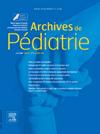Practical implementation of the collegial decision-making procedure in case of possible unreasonable obstinacy in Neonatology
IF 1.3
4区 医学
Q3 PEDIATRICS
引用次数: 0
Abstract
Introduction
The withholding or withdrawal of life-sustaining treatment has become the predominant cause of death in neonatal intensive care units. The advancements in perinatal medicine have led to a re-evaluation of the necessity and relevance of initiating and maintaining those treatments in patients whose conditions are not expected to improve. This decision must be made in accordance with the codified collegial decision-making process outlined in French law. In light of the shifts in end-of-life care, a review of professional practice is crucial.
Objective
The objective of this study was to analyze the practical implementation of the collegial decision-making process in the Neonatology Department of the Caen University Hospital. The analysis focused on three key areas: the logistical setup, the compliance with the legal framework, and the deliberation mechanisms for each collegial decision-making process. To assess the implementation of the limitation of life-sustaining treatment meetings, a variety of methods were employed, including participant observation, review of medical records, and the distribution of surveys to participants.
Results
In one year, 16 collegial decision-making processes were initiated, and 20 meetings were scheduled to discuss the restrictions on life-sustaining treatment. In 2 cases, the process was initiated by parents. The primary clinical condition that prompted the implementation of a collegial procedure was neurological. The presence of an external consultant was noted in 19 times. In 3 out of 20 times, parents weren't notified of their child's meeting prior to the date but all were informed of the meeting's conclusions. Data indicate a statistically significant correlation between professional category and perceived freedom to speak and legitimacy to do so, and the influence of the legal guardian's viewpoint on the participants' thinking.
Conclusion
The legal framework was generally respected, and the culture of service facilitated the incorporation of the collegial procedure into the habits of professionals.
对新生儿可能出现的不合理执拗,实行合议决策程序。
不接受或停止维持生命的治疗已成为新生儿重症监护病房死亡的主要原因。围产期医学的进步已经导致重新评估的必要性和相关性启动和维持这些治疗的患者的病情预计不会改善。这一决定必须按照法国法律所概述的编纂成文法的合议决策程序作出。鉴于临终关怀的转变,对专业实践的回顾至关重要。目的:本研究的目的是分析合议决策过程在卡昂大学医院新生儿科的实际实施情况。分析集中在三个关键领域:后勤设置、法律框架的遵守以及合议庭决策过程的审议机制。为了评估维持生命治疗会议限制的实施情况,采用了多种方法,包括参与者观察、医疗记录审查和向参与者分发调查问卷。结果:一年内共启动了16次合议决策程序,并安排了20次会议讨论维持生命治疗的限制。在两个案例中,这个过程是由父母发起的。促使实施合议程序的主要临床状况是神经系统。有19次指出有外部顾问在场。在20次会议中,有3次家长在会议日期之前没有得到通知,但他们都被告知了会议的结论。数据表明,职业类别与感知的言论自由和言论合法性之间存在统计学上显著的相关性,以及法定监护人的观点对参与者思维的影响。结论:法律框架普遍受到尊重,服务文化促进了合议程序融入专业人员的习惯。
本文章由计算机程序翻译,如有差异,请以英文原文为准。
求助全文
约1分钟内获得全文
求助全文
来源期刊

Archives De Pediatrie
医学-小儿科
CiteScore
2.80
自引率
5.60%
发文量
106
审稿时长
24.1 weeks
期刊介绍:
Archives de Pédiatrie publishes in English original Research papers, Review articles, Short communications, Practice guidelines, Editorials and Letters in all fields relevant to pediatrics.
Eight issues of Archives de Pédiatrie are released annually, as well as supplementary and special editions to complete these regular issues.
All manuscripts submitted to the journal are subjected to peer review by international experts, and must:
Be written in excellent English, clear and easy to understand, precise and concise;
Bring new, interesting, valid information - and improve clinical care or guide future research;
Be solely the work of the author(s) stated;
Not have been previously published elsewhere and not be under consideration by another journal;
Be in accordance with the journal''s Guide for Authors'' instructions: manuscripts that fail to comply with these rules may be returned to the authors without being reviewed.
Under no circumstances does the journal guarantee publication before the editorial board makes its final decision.
Archives de Pédiatrie is the official publication of the French Society of Pediatrics.
 求助内容:
求助内容: 应助结果提醒方式:
应助结果提醒方式:


